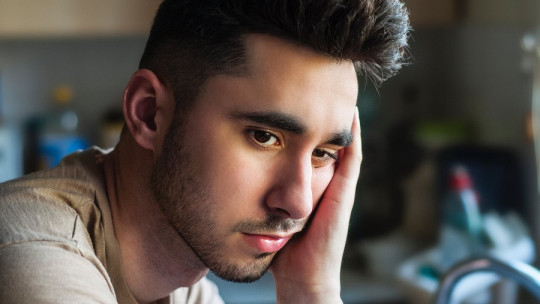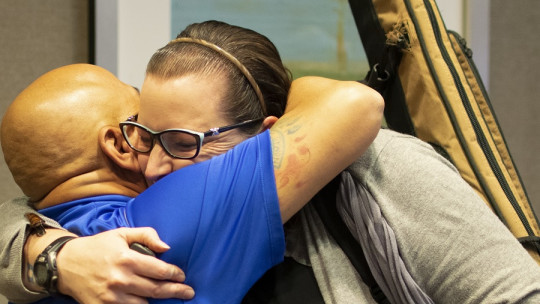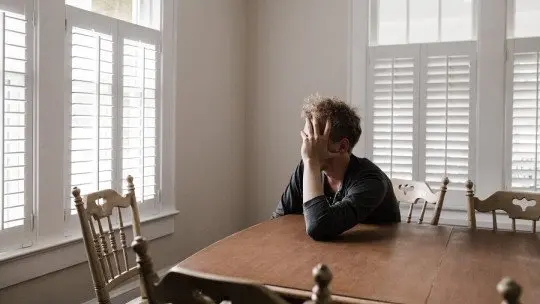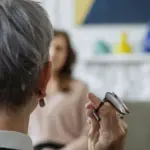
Do not confuse the fact of suffering from depression with the experience of “being depressed.” We all feel sad sometimes, or go through difficult life moments where we have trouble falling asleep, have dark thoughts, or feel down. They are normal human experiences. Throughout life, people go through a range of feelings that range from the saddest to the happiest. Within this long spectrum are sadness, frustration, hopelessness and irritability.
However, if these feelings occur persistently and are affecting the normal functioning of daily life, both at work and in the development of other usual activities, it could mean that rather than being “depressed” the person suffers from depression. .
It is essential if you recognize any of the symptoms of depression in yourself or someone close to you, or if you think you may be suffering from depression, to consult as soon as possible with a doctor who can diagnose the illness and show us the path to follow to help. your treatment. In this article we will present a series of strategies and routines that have been proven effective for combat the experience of “I want to die” by understanding it as linked to depression but it must be taken into account that it is always the medical criterion that prevails over any of this advice.
I want to die: How do I know if I suffer from depression?
Depression is a mood disorder and the DSM-5 (Diagnostic and Statistical Manual of Mental Disorders) includes the following symptoms: loss of interest or pleasure (anhedonia), depressed mood, weight loss, agitation or psychomotor retardation, fatigue or lack of energy, feelings of guilt or worthlessness, lack of concentration or decreased intellectual capacity. In order to talk about a disease, a series of criteria are used:
However, sometimes, some of the typical symptoms of depression may not appear or may manifest differently, for example, the depressed person may not have a feeling that they identify or associate with sadness, but may have lost all interest in leisure. and having stopped enjoying the things that he usually liked and used to do with enthusiasm and pleasure.
I could have depression… What do I do?
As we have already said, the best thing to do if you think you may have depression is to go to a health professional; family doctor, psychiatrist or psychologist. Depression is a mood disorder, and Only a licensed professional can officially determine if you are suffering from depression. Both psychiatrists and psychologists have the ability to diagnose and treat any mental health problem. Regarding medical prescriptions, in the event that antidepressants are needed in the treatment, they can be made by both a psychiatrist and the general practitioner. In the case of the psychologist, he or she can refer the patient if pharmacological treatment is needed.
However, although only professionals can confirm depression, there are some tools or criteria that can help us decide if we should consult a professional.
The first thing is to understand that if someone feels sad all the time, they are probably depressed. Sometimes, if the state of sadness corresponds to an event, that is, for example, the person has been fired from work, or has suffered a breakup, we can think that it is not really depression, but that it is a response natural to the situation, but If the depressive state lasts more than 15 days and the sadness is accompanied by other symptoms, it is important to take charge.

However, if the depressive state lasts very few days, it is probably not depression, since it is an illness that usually lasts weeks to months. Even if the reaction or symptoms presented have been very exaggerated, anxiety attacks, self-harm, these could be the origin of another disorder and it is also necessary to receive professional help.
Bipolarity and depression must be differentiated. Bipolar is a manic-depressive disorder, this means that bipolar people go through periods in which they are depressed, and these can be confused with depression. But bipolarity is another disorder, and therefore needs different treatment. If in addition to these depressive episodes there are periods where the energy level is very high, there is little sleep, there is a lot of agitation, high self-esteem, exaggerated purchases are made, or unusual actions, it is probably a bipolar disorder and not depression. The professional must be informed of the existence of these episodes in order to make the diagnosis and receive appropriate medical attention.
Actions to combat depression
Aside from medical treatment, it is important, as with any illness, to take care of yourself and educate yourself about depression to combat it. Below, we will list a series of strategies that can help you cope.
1. Establish a good dialogue with the doctor
There are many different medications to treat depression. The goal of a doctor is to always offer the best possible treatment. In the case of depression, as in other diseases, It is usually started with the safest or most effective pharmacological treatment. But what works for some, sometimes does not work for others, which is why it is important that in the case of depression a dialogue of trust is established with the doctor, to know how the treatment is working and adjust the doses, or change the treatment. medication if necessary.
2. Give time to treatment
Patience is important, whether you have chosen psychotherapy, antidepressants or a combination of both as treatment; Depression is a disease that takes time to cure.
In the case of antidepressants, they take a while to work; they are also introduced little by little until the prescribed dose is reached. Although this period has been shortened in recent years, the effectiveness of an antidepressant cannot be known with certainty until after a month of treatment. If after this time it does not seem to work, it is advisable to review the dose or change medication.
- Related article: “Psychopharmaceuticals: medications that act on the brain”
3. Find a good mental health professional
Psychotherapy is a treatment that is based on the patient and therapist relationship through dialogue. Many people go through several mental health professionals until they find the right one for them. That doesn’t mean that the previous ones were bad, just that they didn’t work for that person. When choosing a psychiatrist, it is important to see if in the first appointments a relationship of trust is generated and one feels comfortable explaining things or asking openly about your treatment. If this is not the case, it is better to change professionals.
4. Sleep well
If we think about it, we sense that mood has to do with sleep. If one night we sleep less than we should, the next day we are irritable and in a bad mood, we perform less at work and we control our impulses less, for example, it is more difficult for us to avoid chocolate or other types of foods that we normally eat in moderation.
Depression is related to the natural sleep cycle, which makes us fall asleep when it starts to get dark and wake up with daylight. If this is altered, the depressive state can worsen, but depression also affects the sleep cycle, causing people to sleep for more or less hours or to fall asleep at times other than those of the night; typically depressed patients suffer from insomnia. .
As we see, the relationship between depression and sleep hygiene becomes a kind of vicious circle that is difficult to get out of. A recent study showed that cognitive behavioral therapy applied to insomnia significantly increased recovery rates for people with depression. Treating sleep problems is an avenue that is being explored in the treatment of depression and is proving effective.
- Related article: “10 basic principles for good sleep hygiene”
5. Exercise
Brain-derived neurotrophic factor (BDNF) belongs to the neurotryphin family; These proteins help the survival of neurons. Stress decreases the concentration of neurotryphins and causes depressed people to not have this substance in sufficient quantities. Exercise has been revealed as a good method to counteract the effects of stress; brisk walking for half an hour, five days a week, appears to be enough to help release BNDF and increase levels.
6. Do things that make you happy
People with depression or who have suffered from depression cite eating well and sleeping well as key factors in improving mood and helping to cope with depression. But this list includes other things that go beyond medical recommendations: listening to music, cooking, riding a bike, watching funny television shows, or spending time with a pet. They are small or big things, depending on how you look at it, that could work to combat depression.








